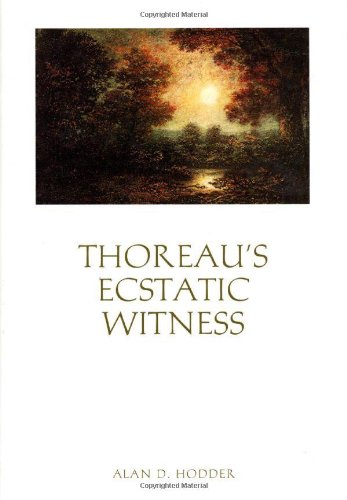
Thoreau's Ecstatic Witness
- اطلاعات
- نقد و بررسی
- دیدگاه کاربران
نقد و بررسی

November 1, 2001
Literary students everywhere have read Thoreau's Walden and "Civil Disobedience" and warmed to his widely acclaimed musings on solitude, nature, and protest. But in this richly detailed study, Hodder (comparative literature, Hampshire Coll.; Emerson's Rhetoric of Revelation) pays scrupulous attention to what he considers the religious expression in Thoreau's work (including his journals); thus the use of the word ecstatic in the title. Hodder believes that much of that expression has been overlooked, with disproportionate critical attention being paid to Thoreau's literary, philosophical, and political concerns. He makes a convincing case that Thoreau's various designations--as a nature writer, man of letters, and social critic--come into better focus once his religious sensibility is factored into his character and work. As Hodder demonstrates, Thoreau was not a follower of institutional religion, believing fervently that rapture came from experience, not faith. But as an ascetic and a sensualist, he thought the natural world barren without a connection to the human spirit. This work is not always an easy read--it demands some knowledge of the writings of Thoreau and other Transcendentalists--but it is certainly worth the effort. Recommended for academic and large public libraries.--Robert L. Kelly, Fort Wayne Community Schs., IN
Copyright 2001 Library Journal, LLC Used with permission.




دیدگاه کاربران